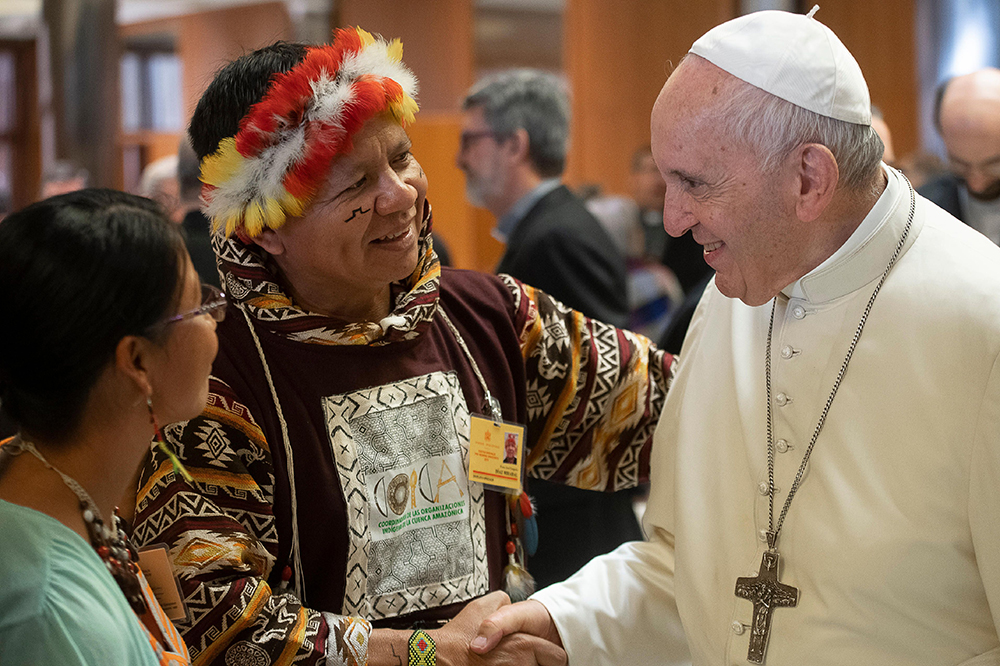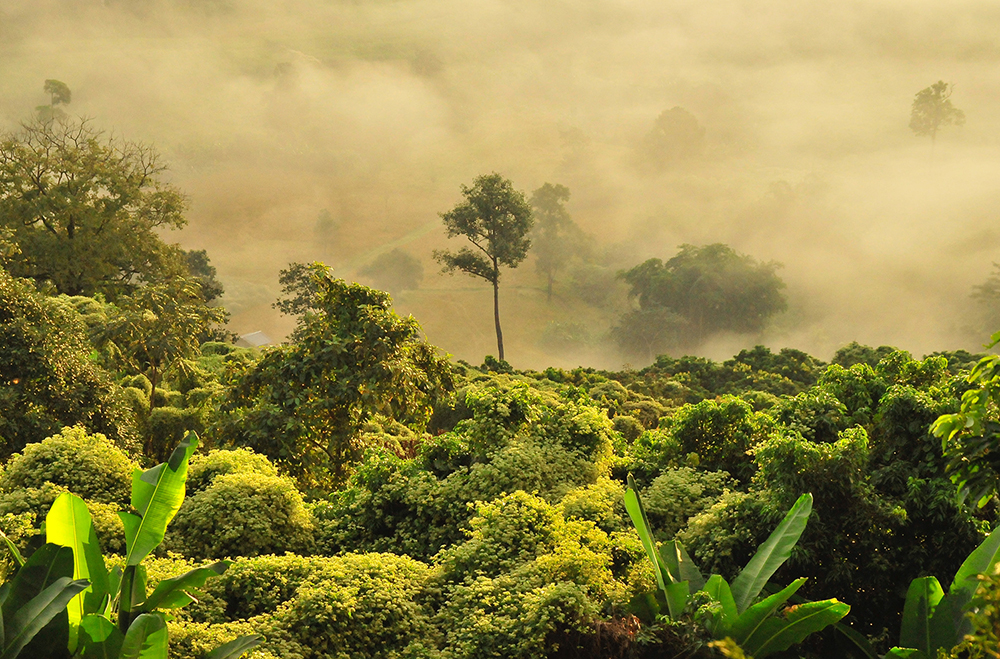WelCom March 2020:

Photo: CNS/Vatican Media
Pope Francis says he wishes his new apostolic exhortation will ‘awaken’ the world’s ‘affection and concern’ for the Amazon region – and help other areas of the world to confront their own challenges. The Vatican released the exhortation on 12 February 2020.
The exhortation follows last year’s Synod of Bishops on the Amazon. Entitled Querida Amazonia, which means Beloved Amazon, Pope Francis’s exhortation sets out his vision for the future of the Amazon. It is divided into four chapters, each dedicated to a ‘great dream’ for the region.
Four great dreams
The Pope’s first chapter, entitled ‘A Social Dream’, focuses on raising the quality of life for the people of the Amazon, with a special emphasis on helping the poor and combating ‘injustice and crime’. He criticises the damage caused by ‘economic actors’ importing ‘alien’ models of resource exploitation into the territories, the migration of indigenous peoples to cities, and the rise of xenophobia, sexual exploitation and drug trafficking.
He ends the chapter by calling for dialogue, firstly with the poor, respecting them as ‘having a leading role to play’, and raising a ‘prophetic voice’ on their behalf.
In Chapter Two, ‘A Cultural Dream’, the Pope takes a positive approach to indigenous peoples and their cultures. He laments how indigenous peoples have been driven into the cities, severing them from their cultural roots and states that ‘postmodern colonisation’ must be combated. He urges the young to ‘take charge’ of their roots.
Concern for indigenous cultural values should be shared by everyone, for their richness is also our own.
Pope Francis
The Pope urges dialogue with Amazonian cultures and says an authentic identity is not preserved by ‘an impoverished isolation’. Concern for indigenous cultural values should therefore be ‘shared by everyone’, for their ‘richness is also our own’.
Francis turns to the ‘Ecological Dream’ in Chapter Three, urging a profound respect for the environment and a recognition of the interconnectedness of all creation. He goes on to lambast abuse of the environment and demands an end to the ‘destruction of mother Earth’, saying ‘multinationals have cut ‘her veins and she is ‘bleeding’.
Francis stresses the importance of water, refers to the Amazon River as the region’s ‘spinal column’, and says the ‘equilibrium of our planet’ depends on the ‘health of the Amazon’.
He urges learning from the ‘ancestral wisdom’ of indigenous peoples to know how to protect the region and learn from the Amazonian people to ‘contemplate’ the region, not only analyse it.
In the final chapter, ‘An Ecclesial Dream’, the Pope focuses on the Church’s role in the region. He stresses that it’s vital to preach the Gospel and bring Christ to others if the Amazon’s problems are to be properly confronted. At the same time he emphasises the importance of the Church reshaping her identity ‘through listening and dialogue’. In this way, inculturation can take place ‘that rejects nothing of the goodness that already exists in Amazonian cultures, but brings it to fulfilment in the light of the Gospel’.
“Francis refers to the Amazon River as the region’s ‘spinal column’, and says the ‘equilibrium of our planet’ depends on the ‘health of the Amazon’.”
The Pope makes no explicit mention of an Amazonian rite of the Mass, a subject widely debated at the synod, but he does call for greater efforts to be made to respect native ‘rituals, gestures and symbols’ and to ‘inculturate the liturgy among indigenous peoples’.
Shortage of priests

Photo: Boudewijn Huysmans, Unsplash
The most eagerly awaited aspect of the document – the ordination of married permanent deacons to make up for a shortage of priests in the region – is not explicitly endorsed by the Pope, despite the majority of synod fathers voting for such a proposal.
The Pope does not mention the words ‘married priests’, ‘priestly celibacy’ or the ordination of married men, the so-called viri probati (‘men of proven virtue’). He does say a ‘way must be found’ to ensure priests can bring the Eucharist to remote areas, but he places more emphasis on giving laity a greater role while underlining the importance of the priesthood.
Also, despite the synod fathers discussing at length the possibilities of a female diaconate, he does not mention the topic and rejects the push for holy orders for women. He extols the role of women in the Church in the Amazon, but says it would be a ‘reductionism’ to believe that only giving women holy orders would mean they had ‘greater status and participation in the Church’. It would ‘narrow our vision’, he says, leading the Church ‘to clericalise women, diminish the great value of what they have already accomplished, and subtly make their indispensable contribution less effective’.
Sources: National Catholic Register, CNS